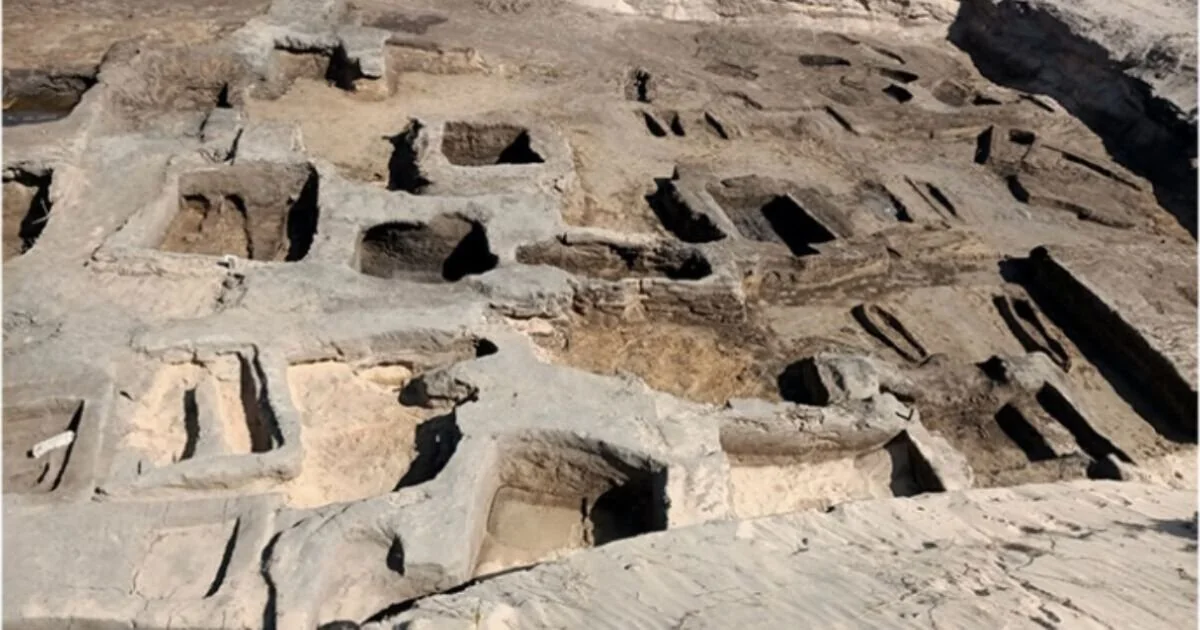A treasure trove of artefacts from Egypt’s last dynasty has been discovered in 63 tombs in the Nile Delta region and experts are working to restore and classify them, an official at the country’s antiquities authority said Monday.
The artefacts include gold coins and jewellery dating from Egypt’s late Ptolemaic and early Ptolemaic periods, and some pieces could be displayed in one of the country’s museums, said Neveine el-Arif, a spokeswoman for the Ministry of Tourism and Antiquities.
An Egyptian archaeological mission from the Supreme Council of Antiquities discovered the mud-brick tombs in the Tell al-Deir necropolis in the city of Damietta (Damietta governorate), the ministry said in a statement last month.
Other objects found in the tomb area include statues, funerary amulets and a pottery container containing 38 bronze coins dating to the Ptolemaic period.
The Ptolemaic dynasty was the last in Egypt before it was incorporated into the Roman Empire. The dynasty was founded in 305 BC after Alexander the Great of Macedon captured Egypt in 332 BC and one of his generals, Ptolemy, became Ptolemy I. Leadership was passed down through Ptolemy’s descendants and ended with Cleopatra.
In 2018, Egypt exhibited objects from the Ptolemaic period for the first time at the Egyptian Museum in Cairo, with around 300 objects.
Story by: Isaac Clottey













